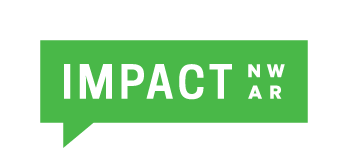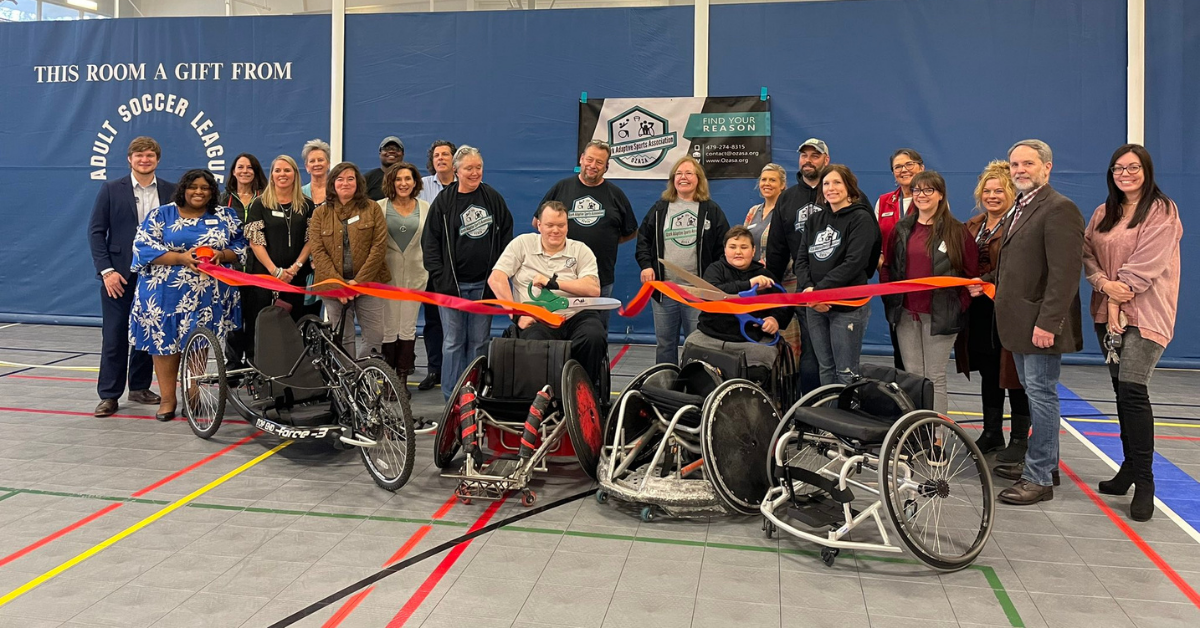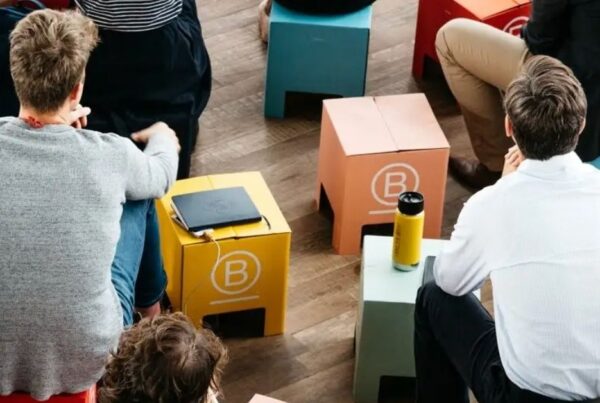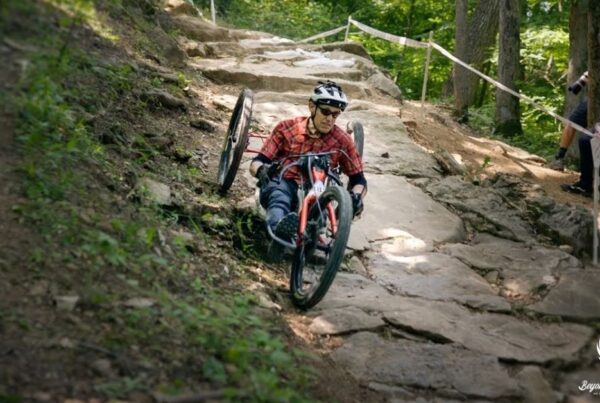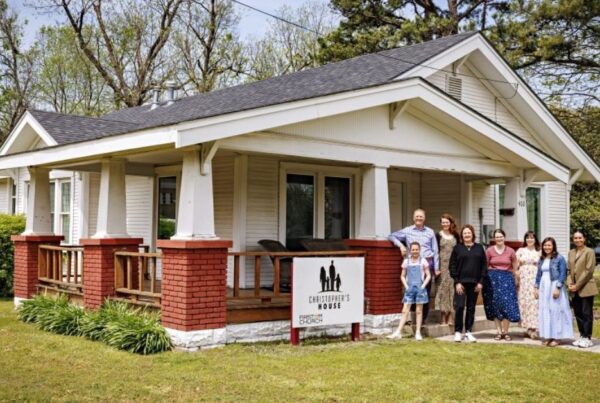Founded by Sean Kent, the Ozark Adaptive Sports Association is a local nonprofit organization striving to build an inclusive community for people with disabilities through sports like wheelchair basketball, rugby, pickleball and handcycling. Check out our recent Q&A with Sean!
Cover photo: Rogers-Lowell Area Chamber of Commerce and Greater Bentonville Area Chamber of Commerce celebrating the ribbon cutting of Ozark Adaptive Sports Association at Rogers Activity Center
To start, take us back and share a little bit of your personal story with us. Where did you grow up? How did you end up in Northwest Arkansas?
I grew up in the suburbs of Chicago. After an accident that broke my neck, I had to move back to my parents’ house. Around that same time, a family member moved to Northwest Arkansas. Our family would visit one or two times a year, and we fell in love with the area. When my parents looked to retire several years later, Northwest Arkansas was at the top of the list. Chicago winters in a wheelchair are not enjoyable.
You are the current founder and president of OZASA. Tell us a little bit about OZASA. When and why did you create this organization? What is the mission? How does OZASA work to carry out that mission?
I created Ozark Adaptive Sports Association (OZASA) in 2019. After the accident 10 years ago, I learned how important adaptive sports and recreation can be to an individual. Living in the Chicago area, I had access to various programs and facilities, to not only stay in shape, but build friendships and get support from others in similar situations. Before moving to Arkansas in 2018, I did research into what adaptive sports were offered in the state and found very little. I have been playing wheelchair rugby for 9 years, and to continue playing I had to travel to the closest team, in Kansas City, 216 miles away. After talking with a few others with disabilities in Northwest Arkansas, I discovered they were also traveling long distances to play these sports. There was a clear need for our community.
You are the current founder and president of OZASA. Tell us a little bit about OZASA. When and why did you create this organization? What is the mission? How does OZASA work to carry out that mission?
I created Ozark Adaptive Sports Association (OZASA) in 2019. After the accident 10 years ago, I learned how important adaptive sports and recreation can be to an individual. Living in the Chicago area, I had access to various programs and facilities, to not only stay in shape, but build friendships and get support from others in similar situations. Before moving to Arkansas in 2018, I did research into what adaptive sports were offered in the state and found very little. I have been playing wheelchair rugby for 9 years, and to continue playing I had to travel to the closest team, in Kansas City, 216 miles away. After talking with a few others with disabilities in Northwest Arkansas, I discovered they were also traveling long distances to play these sports. There was a clear need for our community.
Our organization’s mission is to provide individuals with physical disabilities opportunities, recreation, and competitive sports programs, to promote independence and enhance the quality of their lives.
Currently, we hold weekly open court events in Springdale for anyone interested to come to try out wheelchair basketball, wheelchair rugby, and wheelchair tennis/pickleball. At least once a month, weather permitting, we also hold handcycle events on the local trails. As our membership grows, we plan to hold team practices and expand on the sports and activities we offer.
For someone who has never encountered or participated in adaptive sports, what should they know?
Adaptive sports are more widespread than people realize. There are not only clubs in various cities and regions, but national and international leagues. Over 40 teams compete in the United States Wheelchair Rugby Association (USWRA). The National Wheelchair Basketball Association (NWBA) has grown to over 200 teams. The Tokyo 2020 Paralympic Games, which took place right after the Olympics, had a total of 4,400 athletes representing 162 delegations compete.
Adaptive sporting equipment is very expensive and a barrier for many who want to get involved. OZASA strives to remove that barrier for individuals who are interested in participating by supplying sporting equipment for our members.
For someone who has never encountered or participated in adaptive sports, what should they know?
Adaptive sports are more widespread than people realize. There are not only clubs in various cities and regions, but national and international leagues. Over 40 teams compete in the United States Wheelchair Rugby Association (USWRA). The National Wheelchair Basketball Association (NWBA) has grown to over 200 teams. The Tokyo 2020 Paralympic Games, which took place right after the Olympics, had a total of 4,400 athletes representing 162 delegations compete.
Adaptive sporting equipment is very expensive and a barrier for many who want to get involved. OZASA strives to remove that barrier for individuals who are interested in participating by supplying sporting equipment for our members.
What are some things people might be surprised to know about adaptive sports or about OZASA?
OZASA programs benefit both children and adults with physical disabilities. According to the CDC, 1 in 3, or 822,145 adults living in Arkansas have a disability and according to the 2019 US Census, 12.6%, or 380,268 people under the age of 65 have a disability. Through OZASA we can hold summer camps, clinics, tournaments, expos and races. Who knows, we might have the next paralympic gold medalist in the area!
How can folks get involved and support OZASA?
We host open court Wednesdays at the Springdale Recreation Center, which is the best way for anyone with or without a disability to get involved. We are still pretty new, so spreading the word about the program to those who need it is another way to help us out.
What do you do when you are not playing adaptive sports? Any other hobbies or interests?
When I’m not out on the courts for wheelchair rugby, I’m either working on something for OZASA, watching a movie, going outdoors or handcycling.
How can folks get involved and support OZASA?
We host open court Wednesdays at the Springdale Recreation Center, which is the best way for anyone with or without a disability to get involved. We are still pretty new, so spreading the word about the program to those who need it is another way to help us out.
What do you do when you are not playing adaptive sports? Any other hobbies or interests?
When I’m not out on the courts for wheelchair rugby, I’m either working on something for OZASA, watching a movie, going outdoors or handcycling.
What are some of your favorite things about living in the region?
Some of my favorite things about living in the region include that it is always changing and growing, the trail system, and the fact I live 10 minutes from the lake, the forest, and downtown. There is always something to do.
Someone who has never been to the region is coming for 24 hours, what should they do, where should they go?
My favorite thing to do with someone who is visiting from outside the region is to drive them around. To take them to Beaver Lake or Lake Atalanta, or to just head south on I-49 and then head back north on 71. The region is beautiful and there are so many hidden gems to be discovered along the way
What is your hope for the future of the region?
We want to open the region up to disabled athletes and the community. As we gain more members, we will be able to create teams that compete both across the region and nationwide. We want teams and individuals to come to Northwest Arkansas for competitions and adaptive recreation. We want to offer more than just rugby, tennis and basketball—we hope to add sports such as power soccer, wheelchair softball, handcycle racing, wheelchair racing and mountain bike handcycling. The possibilities are endless.
Our future plan is to have a facility, like many metropolitan areas, focused on providing space for people with disabilities. This adaptive space will become a community hub where we can schedule daily activities and practices, as well as host clinics and tournaments.
What is your hope for the future of the region?
We want to open the region up to disabled athletes and the community. As we gain more members, we will be able to create teams that compete both across the region and nationwide. We want teams and individuals to come to Northwest Arkansas for competitions and adaptive recreation. We want to offer more than just rugby, tennis and basketball—we hope to add sports such as power soccer, wheelchair softball, handcycle racing, wheelchair racing and mountain bike handcycling. The possibilities are endless.
Our future plan is to have a facility, like many metropolitan areas, focused on providing space for people with disabilities. This adaptive space will become a community hub where we can schedule daily activities and practices, as well as host clinics and tournaments.
